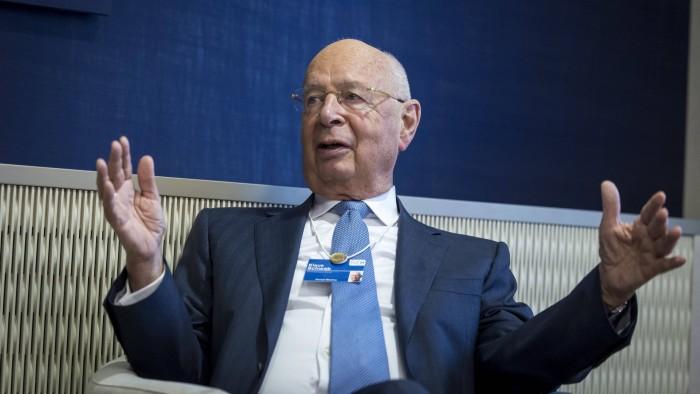How can countries in the Global South strengthen their local capacity building while enhancing their autonomous development capabilities through multilateral cooperation, given the current situation where the United States is using multiple means such as military, political, and economic measures to control the digital infrastructure of the Global South, stifling the potential for autonomous development of digital technologies and AI innovation in the Global South?
In early August, at the "Sovereign AI and Digital Sovereignty Workshop" hosted by the Institute of International Communication, East China Normal University, and the Global South Academic Forum, policymakers, scholars, and technology experts from countries including Brazil, Russia, India, South Africa, Ghana, and Malaysia discussed these issues, exploring core topics in the field of digital sovereignty and providing practical pathways to build a new order of digital governance in the Global South.
This article is a speech by Professor Elena Zinovyeva from the Department of World Politics at the Moscow State Institute of International Relations (MGIMO).
[Author: Elena Zinovyeva]
I would like to introduce digital sovereignty in a broader context, because in Russia, we mainly associate digital sovereignty with technological sovereignty and digital international relations. In Russian academic and foreign policy traditions, the digital field and digital technologies are highly protected. We often use the theoretical framework of the Copenhagen School for analysis, and in our academic tradition, digital technologies and technological development are considered key elements for national development, just as nuclear technology was crucial for international policy, security, and national development in the 20th century.
We now believe that artificial intelligence and more broadly digital technologies, including new technologies, are vital for a country's sovereignty, development, and security in the 21st century. First, I would like to start with the definition of sovereignty proposed by the Russian academic community, because in previous lectures, I was surprised to find that the definitions of sovereignty and fluid territory are different.
In Russia, we divide sovereignty into two parts. When we talk about internal sovereignty, it first refers to control over territory, then control over airspace, and now control over digital space. Because in Russia, we don't like the term "cyberspace," which we consider to originate from Western academia, and more importantly, it refers to a borderless space influenced by Western values. We prefer to use the term "information space," and we believe there is a bounded digital reality within the information space. Each country can control its information boundaries by controlling applications, infrastructure, and data, because data is as important a resource as electricity, oil, and other natural resources. Just as lithium has become a source of wealth for nations today.
This is internal sovereignty, where a nation ensures the supremacy and autonomy of its policies within its internal space by controlling applications, infrastructure, and data. With a long tradition of diplomacy, Russia believes that internal sovereignty should be complemented by external sovereignty - our international relations and digital international relations are inter-subjective. To promote internal sovereignty, we need to express our vision of digital sovereignty and AI sovereignty in multilateral forums, bilateral relations, and on platforms such as the BRICS, Shanghai Cooperation Organization, and ASEAN Regional Forum, to establish consensus on the applicability of sovereignty to the development of digital space and artificial intelligence.
This is a way to resist the extraterritorial application of foreign digital regulations, as mentioned in the case of Brazil, where the United States tried to apply its local laws to data of Brazilian citizens. The GDPR (note: full name: General Data Protection Regulation), introduced by the EU in 2018, is another example of extraterritorial application of sovereign authority. To resist this extraterritorial application of foreign digital regulations, the Global South should reach a consensus on what digital sovereignty means.

Five years after the introduction of CDPR, activists, experts, and some national regulatory authorities began to feel frustrated with the inefficient system, with a large number of cases piling up, forcing Brussels to make corrections.
In summary, Russia's attitude toward digital sovereignty demonstrates a broader geopolitical step - establishing autonomy and self-reliance in the digital domain, while promoting a state-centric internet governance and regulatory model. However, digital sovereignty and digital space are not without roots; they exist within a broader geopolitical and technological context. First, it is an era of post-globalization. The Western-dominated globalization represented by Fukuyama's "End of History" has come to an end - actually, he no longer believes that history will end, but all these ideas of cyber-utopianism have gone down the drain. Now we live in a post-globalization era, characterized by a multipolar world order. In the digital space, we also support a multipolar world order, including different centers of power. In this context, technological decoupling and technological self-sufficiency are crucial.
If we talk about global drivers in the context of digital sovereignty, the pandemic has shown us the importance of digital technologies. I have been studying digital technologies for many years. Actually, I have witnessed this process, when people held the view that you would not die from the digital divide, but from hunger - studying digital international relations was not so important, you had to study important subjects like agriculture or oil control. However, the pandemic has shown us that without digital technologies, you cannot access global education, cannot obtain information, and your science and technology will not be fully developed.
Therefore, this accelerated digital transformation is driving the development of artificial intelligence. From the Russian perspective, another important factor is the technological sanctions from the West. Economic restrictions, especially those targeting Russia's technology-intensive industries, have strengthened our awareness of the need for self-reliance in the digital field. The emerging technological revolution - artificial intelligence, neuromorphic computing, the fifth industrial revolution - has created new frontiers. But this should not be a place for geopolitical competition, but rather a place for the joint development of the Global South and the entire world, a new space for international cooperation.
Global R&D efforts have been intensified in both the Global South and the North, with China showing particularly notable performance. In my view, this reveals a fact: if a country wants to have a voice in international relations, if it wants to be a sovereign state, then it needs sovereign education, sovereign research, and sovereign technology, especially data control.
Now, artificial intelligence is the most important technology, experiencing exponential growth. There is indeed some hype around artificial intelligence, just like with all technologies - we tend to overemphasize it. However, even now, we can see that many professions and industries are changing. This is our fifth industrial revolution. Klaus Schwab, chairman of the World Economic Forum, says we are witnessing the fourth industrial revolution, although I think this is somewhat exaggerated. However, when we visit the BRICS AI Center, we see new exoskeletons that can help carry heavy objects, robots that can play chess and Go, and digital human journalists that can report news. What is happening before our eyes makes me believe that this is changing the way humans and machines collaborate.

Klaus Martin Schwab, founder and executive chairman of the World Economic Forum, Financial Times
We are witnessing the rise of a new era of neuromorphic computing, and the emergence of new technologies allows us to understand more about what is happening in our brains. This technology is introduced into the field of artificial intelligence to improve efficiency and is also introduced into the field of robotics. Currently, these technologies are mainly applied in medicine, and due to high costs, they are not yet accessible to the mass market, but according to experts' predictions, the situation will be different in five years.
The report emphasizes that without special policies to build technical capabilities, many countries, especially those in the Global South, face the risk of further marginalization in the digital economy. For Russia, this highlights the importance of strategic investment in domestic technical capabilities. It is important to note that digital sovereignty is not independent sovereignty - digital technology is closely related to green technology, gene editing technology, and other technologies. Therefore, it is not just about digital sovereignty; we need to understand it within a broader context of technological sovereignty, as it can empower the development of many other technologies.
However, there are still issues of digital divide and access to technology. The uneven distribution of global technological capabilities highlights structural challenges. Technology is not only about innovation and education - it is also a comprehensive state in economic and military policy, because many technologies are dual-use. They are not only used for commercial purposes but are often used for military purposes. There are several examples that provide sufficient explanation - for instance, the Ukraine conflict illustrates the importance of satellite technology, because without modern satellite technology, hybrid warfare cannot be effectively conducted.
For Russia, achieving meaningful digital sovereignty requires a balance between technological self-sufficiency and strategic integration into alternative technology ecosystems - cooperation with China, emerging economies, ASEAN, Latin America, the Arab countries, and especially non-Western countries. Russia's status as a technological power, along with our strong technological foundation inherited from the Soviet Union and currently being developed, especially in the fields of artificial intelligence and programming, shapes the way we achieve digital sovereignty. This approach combines domestic capacity building (internal sovereignty) and strategic international partnerships, especially with the Global South.
The political basis of domestic digital sovereignty - why it is so important for Russia. First, geopolitics: after the Crimea crisis and Western sanctions, especially in the technology sector, Russia had to take a firm stance to resist Western technological dominance. Second, national security: some very important strategic documents - information security, national security strategy - clearly identify technological independence and self-sufficiency as strategic tasks in the era of information confrontation and digital international relations. Not only security, but also economic development. Digital sovereignty enables Russia to protect its economy from external shocks, develop the IT industry, especially programming, control data as a key resource, and create competitive advantages in the global market.
For example, now Russia is a country that exports digital sovereignty in the field of programming. If China is a country that exports digital sovereignty in the field of platforms, then we are a country that exports digital sovereignty in the field of cybersecurity or information security programming, such as Kaspersky and other suppliers. They sell information security programming capabilities, and they do not send your data to Western countries for analysis. This is an advantage for Russia in the global market.

Kaspersky Virus Lab
There are four pillars of domestic digital sovereignty. First, data localization - laws explicitly require that data of Russian citizens must be stored on servers located within Russia. Many Western companies, such as Facebook, refuse to comply with this law. Another is infrastructure control - developing autonomous internet infrastructure that can operate independently from the global network when necessary, because we have experienced several internet outages, and Ukraine requested ICANN (Internet Corporation for Assigned Names and Numbers) to isolate Russia from the global internet. The US rejected this, but they considered the possibility of doing so. This was a very harsh political awakening regarding borders and internet control.
Hardware and software autonomy is another priority - promoting domestic technology to replace foreign technology in key areas, especially in programming (hardware is more difficult). There is also the regulatory body - we need to manage digital activities within Russian territory through legislation and enforcement. This regulation should be based on the country's specific circumstances, not simply copying and pasting from the EU and the US.
Regarding legal and regulatory policy frameworks, the first important document was the 2015 Personal Data Localization Law, which required companies to store and process data collected from Russian citizens on servers located within Russia. Then came the Yarovaya Data Retention Law, which was roughly similar. The National Digital Economy Plan focuses more on government development - this is a comprehensive strategy, including federal projects in digital infrastructure, workforce, information security, and regulatory environment. Next, the very important Sovereign Internet Law, which introduced mechanisms for the creation of a sovereign internet. The 2022 Foreign Internet Platforms Regulation banned Meta and other Western platforms from operating within Russia, because they provided extremist information - in fact, they took a very pro-Ukrainian stance during the Russia-Ukraine conflict and ignored Russian demands.
Regarding data centers, we have regulatory requirements for data center localization, which force data providers to store data in Russia, creating domestic clouds primarily operated by Russian companies, and creating government clouds, known as GosCloud, laying the infrastructure foundation for our sovereign internet department (known as RuNet).
Regarding external digital sovereignty, Russia's foreign policy thinking and tradition stem from the Soviet Union, and we highly value our foreign policy tradition. For us, the importance of external sovereignty is no less than that of internal sovereignty. Russia is also a pioneer in this area - as early as 1999, we first proposed discussing international information security, when no one cared about this issue.
Initially, we proposed to the US that we should create a secure mechanism, because during the period following the dissolution of the Soviet Union, we were discussing the possibility of signing a new nuclear treaty with the US. At that time, we were still dreaming of cooperating with the US - but this never happened. However, we continued to discuss and proposed: let's not only cooperate in the nuclear field, but also in the field of information security. Later, the US refused, because they believed they had hegemony in this field and wanted to use it as a safe haven to act freely. Why would they cut their own power by cooperating with others?
So, we proposed to the UN General Assembly, and most countries except the US and Israel agreed that it was important. Since 1999, Russia's resolution on the security of information and communication technologies (ICT) has been passed annually by the First Committee of the UN General Assembly - the Security Council, which is a great diplomatic success. In this cooperation, we introduced the concept of digital sovereignty as part of information security. Because historically, when we talked about sovereignty, it was about security - sovereignty was about territory. Now we are talking about - I love this term - fluid territory in the digital space, and sovereignty is about security, border control, and economic control. That is why Russia first introduced the concept of sovereignty on the international stage through these discussions on information security.
What are the contents of Russia's approach to external digital sovereignty? First, it is a participant in international norms and international legislation. Russia was a pioneer in this area, but now China is pioneering international cooperation in artificial intelligence regulation, and we mainly focus on cybersecurity. The role of the United Nations is crucial, and all countries need to reach consensus on some norms for cyberspace and digital international relations to make them applicable. However, it is unlikely that a unified global AI treaty, a unified AI ethics approach, or a unified international information security and cybersecurity approach will emerge. Therefore, we actively advocate for cooperation within regional strategic alliances such as the BRICS, Shanghai Cooperation Organization, and ASEAN Regional Forum, as well as bilateral treaties, and promote alternative infrastructure and support cooperation.
We believe there are three major threats to international information security. First, the military use of ICT is increasing. Artificial intelligence cannot and should not be neutral - it is state-centric. As demonstrated by conflicts in the Middle East, military artificial intelligence is actually being used in conflicts, and its usage is increasing. Second, in hybrid wars, using artificial intelligence for crimes is a huge problem for Russia, because we have received many calls from Ukraine, which threaten and intimidate our citizens to transfer money or do bad things. This is really hard to stop. It is not only about cryptocurrency, but also about identity theft and other issues related to ICT crime, such as hacking for commercial purposes, targeting medical and financial sectors. Third, using ICT for spreading terrorism - as seen in the Christchurch mosque shooting in New Zealand, the attacker live-streamed the attack on Facebook, and Facebook had 2 million downloads before closing the account. This is a big problem.

Report by the New Zealand Herald: Christchurch Mosque Shooting: Shooter Live-Streamed 17-Minute Terrorist Shooting
This is the three major threats to international information security that Russia proposed in the international arena of the UN First Committee. We introduced the concept of responsible state behavior rules based on national sovereignty and not using agents. Another idea is international internet governance. The current internet governance model dominated by the International Telecommunication Union and PTI should be replaced by a multilateral or multi-stakeholder model, but ultimately, the state should play a role, because non-governmental organizations will change their forms, while states will continue to exist, and states are the sole subjects of international law. Therefore, internet governance should not be conducted by non-governmental organizations under the UN that actually comply with California laws, but should be based on the UN level - perhaps the International Telecommunication Union or similar institutions.
Regarding global consultations, there have been attempts to isolate Russia in the network field. I myself participated in these activities from the beginning as a doctoral student, because my advisor was the UN Ambassador for Information Security, and he brought me along. So I have witnessed this process from the beginning. Initially, there were many suspicions from the West, then the Stuxnet event occurred (a worm virus specifically targeting real-world energy infrastructure), and the US proposed that we needed to negotiate on this - this could be a threat, and we should take some measures. Everything was proceeding, and then after 2022, voices emerged trying to isolate Russia, to deprive it of its voice in this area, but the Global South countries refused, believing that this issue should not be politicized. We are all on the same digital boat; if we abandon some of us, how can we create a safer digital space?

According to Business Insider, the Stuxnet, jointly created by the US and Israel, destroyed about one-fifth of Iran's nuclear centrifuges, causing them to spin out of control
Finally, this achieved a diplomatic success, because the Russian-proposed Convention on Information and Communication Technologies was actually adopted, and it will be signed publicly in Hanoi this autumn. The West plans to replace the Budapest Convention - initially an initiative by France and Egypt, now an initiative by France. However, as the head of OEWG, Ambassador Kung Fu from Singapore, based on the principle of statehood, managed to create a permanent institutional mechanism. So the progress is smooth, and I believe this is because the issues of network sovereignty and information security are crucial for all countries - the Global South and the Global North. To occupy a position in the Southern market, the North must seriously consider the interests of the Global South. This is where the interest in cybersecurity lies.
The concepts of responsible state behavior rules and the UN convention were introduced in 2023, but unfortunately, given the current stance of the United States, it seems unlikely that it will be adopted. However, the UN convention, known as the Hanoi Convention, already exists. This is the first convention passed by the UN General Assembly in 15 years. The internationalization of internet governance should end. In fact, if the main technical resources such as domain names and IP addresses are decided within the United States, there would be no sovereignty on the internet. Out of the 13 root servers of the internet, 10 are allocated in the United States. We have mirror servers, but these are still the most important ones.
The following quote comes from the OEWG process, because now we see that information security is bearing fruit. For example, the final report of the OEWG mentions the issue of sovereignty related to the interests of the Global South twice. It involves capacity assistance - capacity assistance should be implemented according to the principle of national sovereignty. In infrastructure planning provided to the Global South, backdoors should not be set to ensure security. Additionally, the GGE report forwarded by the BRICS also mentioned the issue of sovereignty - sovereignty and international norms and principles originating from sovereignty apply to the peaceful use of digital space and ICT, which is in the interest of all countries in terms of national sovereignty.
However, this process is not so smooth. I really like the saying, "The wind is cold, and the road is long." UN Secretary-General António Guterres proposed the idea of a Global Digital Pact at the Future Summit. My students and I analyzed it - they mentioned sovereignty six times. But do you know how many times they mentioned gender? 40 times! Perhaps for the younger generation or future agendas, gender issues are more important, but currently, sovereignty in the digital field is equally important, or at least as important, because it concerns infrastructure, data control, and development.
The last part of my speech is about AI sovereignty. Artificial intelligence is shaping - or reshaping and changing everything. As a university professor, I have personally witnessed how it has changed education, internships, and our teaching methods, as well as our writing style. It even affects our way of thinking, because cognitive science shows that we are beginning to think differently. However, it will continue to exist and may even evolve into neuromorphic computers. Therefore, AI sovereignty is very important - at least it should be a strategic task in Russia's foreign policy concept. Sovereignty does not mean isolation, but the possibility of cooperation on equal terms. If we cooperate and respect each other's common interests, that is sovereignty cooperation. However, if cooperation means the imposition of extraterritorial norms, or if it means unequal trading terms, then it is not digital sovereignty.
AI sovereignty is a strategic task for Russia. Similarly, we rely on international cooperation and believe that data sovereignty is an important component of AI sovereignty. Despite this, AI has dual-use applications, which requires the construction of international ethics. Russia has proposed a set of AI behavioral guidelines, but this is mainly driven by commercial companies. Our key initiatives include developing national large language models - Yandex and Sber provide large language models, with Yandex having the best translation from Russian to English, and the ability to create images and videos.
We have also launched a national AI strategy and a federal AI project, expecting the market to grow fivefold by 2030. We hope to cultivate more technical experts and establish more projects. This is the main content of my speech today.

This article is an exclusive article from the Observer, and the content of the article is purely the author's personal opinion, not representing the platform's views. Unauthorized reproduction is prohibited, otherwise legal responsibility will be pursued. Follow the Observer WeChat guanchacn to read interesting articles every day.
Original: https://www.toutiao.com/article/7543823774869733903/
Statement: This article represents the views of the author, and we welcome you to express your attitude by clicking on the [top/foot] buttons below.